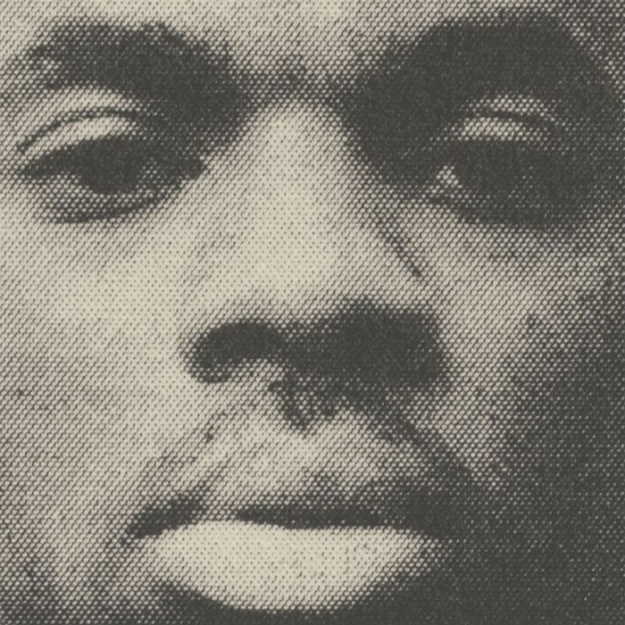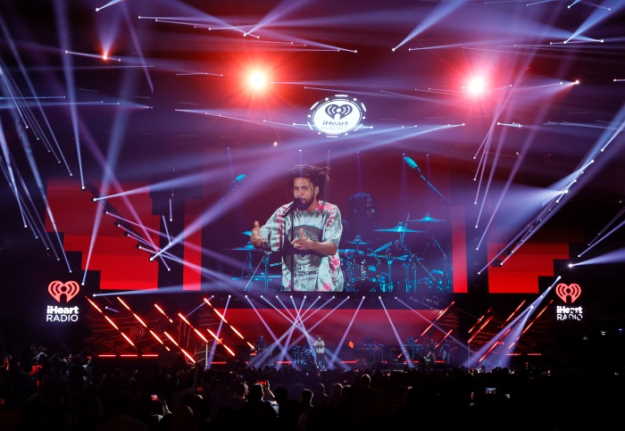|
Taken from The Undefeated (Oct 01, 2021)
The coming battle over rap album lengths
Streaming made track lists longer. Will TikTok reverse that trend?
by Adam Aziz

Rapper Vince Staples performs at the 2018 ComplexCon at the Long Beach Convention Center on Nov. 3, 2018, in Long Beach, California. Earl Gibson III/Getty Images |
When emcee Vince Staples released his self-titled fourth album this summer, the introspective project continued Staples' path as a picture painter with vivid lyrics about his upbringing in Long Beach, California. The most surprising aspect of the album was how short it was.
With only 10 songs clocking in at just over 20 minutes in length and with a singular producer in Kenny Beats, the album harked back to a golden era of rap when shorter albums were commonplace and quality was prioritized over quantity. And the initial reaction was encouraging: The album debuted at No. 21 on the Billboard 200 and sold more than 20,000 copies in its first week. This was the second-highest debut of Staples' career, with one reviewer lauding the album as a "piece of art."
But in a streaming-first world, is it really possible for shorter rap albums to make a comeback?

Vince Staples released his self-titled fourth album, which has only 10 songs and is just over 20 minutes in length, this summer. 2021 UMG Recordings Inc. |
"There is definitely a conscious decision to how many songs are on it [the album], it's a streaming strategy," said Hovain Hylton, president of management at Cinematic Music Group, home to artists such as Cam'ron and Smoke DZA.
To understand why the music industry believes more is better, look no further than how Billboard calculates album sales. In 2018, Billboard adjusted its weighting around streams to album sales. Every 1,500 streams of a song from an album are the equivalent of one album sale. So an album with 15 or more songs likely stands a greater chance of attracting more streams than a 10-track project.
For the labels, the more songs on an album, the greater the opportunity for artists to achieve coveted spots on playlists and the greater likelihood the album will achieve Record Industry Association of America gold and platinum certifications. And those achievements can help sell an artist to a brand.
"The record labels are keenly aware of consumption habits, analytics, trends," said Brian "Z" Zisook, co-founder and vice president of content operations at music streaming app service Audiomack. "They are undeniably the driving force behind the construction of these massively long albums."
Still, the change was a revelation for artists of a certain age. "Wayne had never released an album in the streaming era," Lil Wayne's manager Mack Maine said of the 2018 release of Tha Carter V. "Everybody was like, 'Yo, you gotta put more tracks on there because that'll get the streams up.' "
In the pre-streaming era, whether an artist had 20 songs on an album or 10 songs, what mattered most was the CD sale ringing in at the register. Maine, president of the Young Money record label, recalled the thought process around crafting longer albums, such as 500 Degreez, which was released in 2002.
"Wayne's thinking process, from what he and I spoke about, was we look at our albums as feeding the people like food, so he always wanted to make sure the consumer was full after they listen to the album," he said.
But the trend toward longer albums may be changing. "We have a project coming out soon that will only be 10 or 11 joints," said Maine of a forthcoming Lil Wayne album.

J. Cole performs during the 2021 iHeartRadio Music Festival at T-Mobile Arena on Sept. 17 in Las Vegas. Ethan Miller/Getty Images |
Others in the industry believe changes to recording contracts may nudge this trend forward.
"I think we could eventually start seeing more singles deals and contracts structured around what makes sense in today's marketplace," said Zisook. "Many of these artists finding fame through TikTok or social media don't necessarily have an album, let alone multiple albums, in them."
And as music fans' choices for entertainment grow with a variety of all-you-can-consume streaming services from TV, film and gaming, and a large amount of music discovery happening outside of Spotify on platforms such as TikTok and Twitch, the intentional stuffing of albums to boost streaming numbers may begin to wane.
"The construction of longer albums to boost opening-week streams, I think, will decrease, as we see the total run time of individual tracks continue to decrease," Zisook said. "Nonstorytelling artists are best suited getting in and out of tracks."
Rap's golden era was built on storytelling and taking listeners on a journey. Artists such as Nas, Big Daddy Kane, Rakim and others wrote screenplays as much as they were writing rap songs. Juxtapose this with new research stating that TikTok is the No. 1 place for new music discovery for users of the platform. Most new artists on TikTok need to grab the attention of someone with a catchy hook or easy-to-follow call and response or dance-related lyrics quickly, leaving storytelling in the past.
But it's unlikely any change in album lengths will happen quickly. Of all the albums that hit No. 1 on the Billboard Top Rap Album charts in 2021, only one, J. Cole's The Off-Season, is less than 40 minutes long. It's also the only album to feature fewer than 15 songs. Recent top-selling albums by Drake and Kanye West were bloated affairs, each clocking in at well over one hour in length. Still, critical reception for the new Drake and West albums was mixed, with many fans creating their playlists condensing the projects to perceived better quality and a less time-consuming listen.
"What I enjoyed the most about Vince's new album is its brevity," said Zisook. "In a world where consumer free time is limited, how we choose to spend that time requires calculation. If I have an hour to listen to new music, actively or passively, I might be more interested in listening to three shorter, 20-minute projects than pressing play on a slog of a 23-track, hour-plus album."
There was a time when concise rap albums ruled the day. It was called hip-hop's "golden era," roughly spanning the mid-'80s to mid-'90s. If we look at LA Weekly's list of the top 20 golden age hip-hop albums, most are under an hour with fewer than 15 songs, including several 10-song projects such as Big Daddy Kane's debut album Long Live the Kane. Only one, Ultramagnetic MC's Critical Beatdown, clocks in at over 21 tracks and over an hour long.
"I remember the great albums being around 10 songs," said AZ, a rapper who worked frequently with Nas. "From Michael Jackson to Illmatic to Criminal Minded with KRS-One. A lot of great albums got straight to the point, and it completed the mission."
Most recording contracts stipulate a specific number of songs the artist must deliver. In the recent podcast series The Making of The Blueprint by Breaking Atoms, there is a clip of Just Blaze (at 25:52) telling a story about Jay-Z not willing to record more songs than he was contractually obligated to deliver because he wouldn't be paid for anything beyond his 13-song cap.
The Blueprint is now considered a classic and was the first hip-hop album chosen for the National Recording Registry in the 21st century. Would The Blueprint have been a classic at 20 tracks or more? Anything is possible. But the cohesiveness and quality of the project are what continue to make it a celebrated album today.
When it comes to today's music fans and critics, one of the first critiques on social media when modern-day rap albums are released is their length and bloated track lists. As Craig Jenkins writes in the Vulture review for Drake's Certified Lover Boy, "there are too many songs, too many beat changes, too many competing ideas."
Whether or not the music industry begins to move away from albums or starts to reduce the trend around bloated track lists, one thing is certain and that is quality, replay value and the creation of timeless music will never go out of style.
"Quality matters forever. For hip-hop, for country, for rock, for pop, for R&B," said AZ. "Quality is key. Quality is king."
Sometimes, less is more.
|